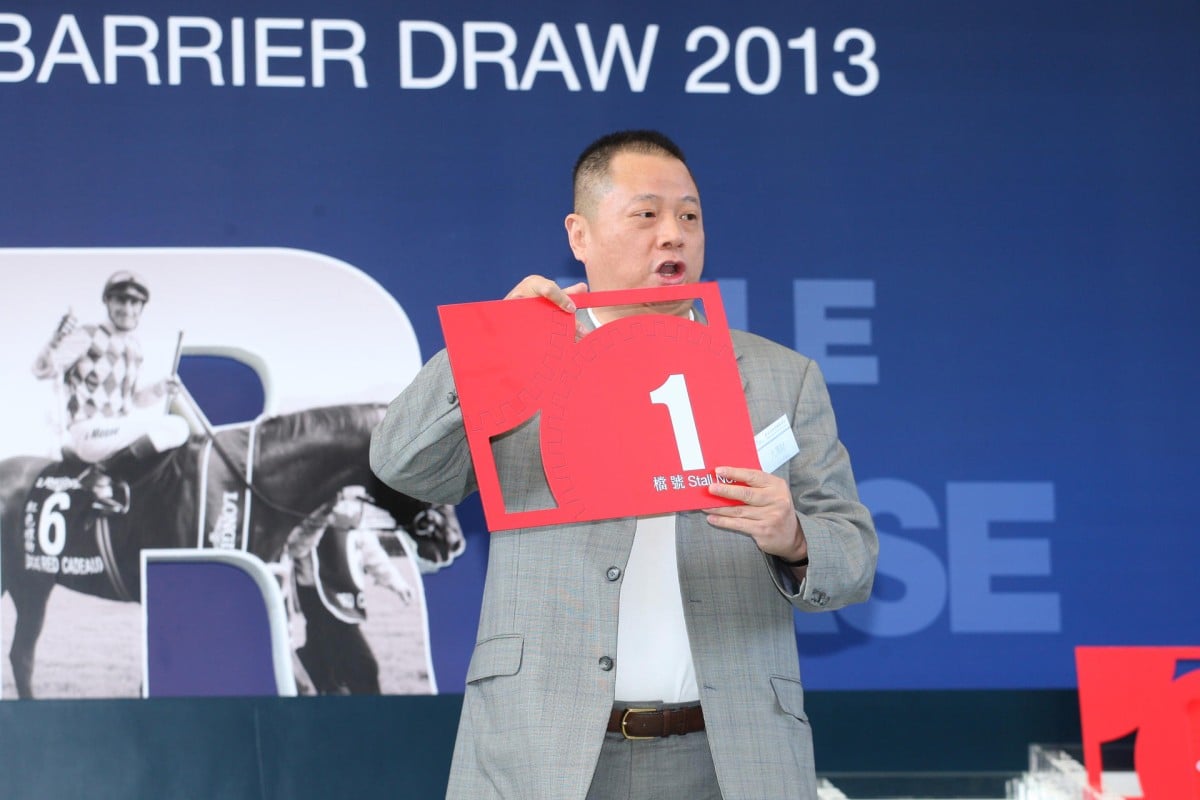There is a big difference between being simply rich and being incredibly wealthy, but how to define it? A glimpse into Pan Sutong's lifestyle and, in particular, his so-called "hobbies" put Hong Kong racing's billionaire "man of mystery" squarely in the latter category.
A rich person might buy a polo pony or maybe even own a string of ponies - Pan got involved in the elitist sport by building an extravagant polo club in Tianjin, and developing an 89 hectare town to go with it, which is part of a US$5 billion project featuring a still under-construction 117-storey skyscraper. He soon became honorary vice-president of the Federation of International Polo.
Many rich people like collecting wine - like reds from Sloan Estate, for instance. That will set you back up to US$1,000 per bottle and that is only if you can gain a place on the exclusive mailing list of clients allowed to buy direct.
In June 2011, Pan spectacularly jumped the queue and flew in his private jet to California's Napa Valley to visit Sloan Estate, not to buy a bottle or a case, but to inspect the whole 4.8 hectare farm - and returned home less than 24 hours later having purchased one of the most highly sought-after vineyards in the world for US$50 million. He also owns three more vineyards in Bordeaux, bought for €12 million (HK$108 million) in 2011.
Pan's entrance into Hong Kong racing, and subsequent impact, has equally been no less spectacular.

In 2011, he was introduced to rookie English trainer Richard Gibson and, with the owner's history of not doing things by halves, his success is no surprise.
Pan's involvement in polo and three decades of living and working in Hong Kong had sparked an interest in the sport. After racing Tailwind with trainer Me Tsui Yu-sak, and winning a solitary race, of the three horses to start since in Pan's predominantly gold silks, he has not missed since with Gibson.
First, Pan splurged a headline-grabbing US$2 million on Akeed Mofeed, a three-year-old colt out of Ireland, which was seen as a risky purchase at the time, but one that has paid off with interest.
The same season, he bought another horse from Ireland, Gold-Fun, thought at the time to be a rough diamond of a prospect at best, a raw chestnut with unruly racing manners.
Under Gibson's expert guidance, the two horses took their four-year-old season by storm; Akeed Mofeed secured the race every owner dreams of winning, the 2013 BMW Hong Kong Derby, after Gold-Fun had already snared the Hong Kong Classic Mile.
Pan's third purchase for Gibson, Giant Treasure, contests that same race today, while a fourth - Irish import Obliterator - is yet to race in Hong Kong, but is in trackwork and being set for a shot at emulating Akeed Mofeed in this year's Derby.

In racing, more than most fields, money does not ensure success - that old adage, "How do you make one million dollars in racing? Start with one billion" comes to mind.
And while fung shui devotee Pan admits luck has been on his side with his racetrack acquisitions, and the estimated £500,000 (HK$5.9 million) Giant Treasure cost might be the equivalent of spare change for a man whose personal business holdings in his various Goldin enterprises were last year valued at US$2.8 billion, the 51-year-old says he still applies the same strict business acumen to the bloodstock game as he would the stock market.
"When I pick a horse, it is no piece of cake," he told the Sunday Morning Post in a rare interview last week. "I always try to look for the best that is available. Take Giant Treasure … we started looking for a good suitable horse in April last year and it was not until late July we finally found one that was up to standard."
Other than Gibson, the common denominator among Pan's four Hong Kong Group One wins has been 13-time champion jockey Douglas Whyte, who has won the aforementioned Group Ones, plus the 2012 Longines Hong Kong Cup on Akeed Mofeed and last year's Queen's Silver Jubilee Cup on Gold-Fun.
"Mr Pan has waited for the right horses, it hasn't been a rush job," Whyte said. "He does his homework and he obviously makes very astute decisions."
With Pan's appetite for racing further fuelled by his early success, in late 2013 he established a more permanent presence in the sport by buying one of Australia's most famous racing properties.
The 505 hectares breeding and training facility formerly known as Lindsay Park was set up in 1965 in South Australia by Colin Hayes, father of champion Hong Kong trainer David.

At the time of the purchase Pan was respectful of the property's history, saying, "We understand the deep historical sensitivities of this property and its place within the local region's heritage", but it has not stopped him forging ahead with a plan to make the property a "world-class equine facility".
Now known as Goldin Farms, and with a "foundation stallion" in the form of Akeed Mofeed, who was retired to stud last season having won more than HK$28 million, the redevelopment project's manager, Winfried Meyer, says the property is on its way to reclaiming its mantle as an "international thoroughbred racing icon". "Mr Pan is a truly visionary man," Meyer said.
"What impresses me the most in the way he has gone about reshaping Lindsay Park is the standard of excellence he has commanded right from the outset. His ability in matching his dreams with the appropriate property is remarkable."
Pan has been put up as a poster child of China's nouveau riche by some in Hong Kong's cliquey racing circles - and the polo club, vineyards and minders at the racetrack certainly do not do much to dispel the stereotype. But Pan is a proud Hongkonger and seems to eschew the "mainlander" tag, having come from humble beginnings.
He was born in Shaoguan, Guangdong, where his grandmother raised him until she died of cancer when he was 13, and he moved to California to live with a step grandmother.
A self-professed underachiever at school, he failed to graduate from high school and after taking a loan from his aunt, Pan returned to Hong Kong at 21.
He started a business selling Japanese electronics and within a decade was manufacturing about 90 per cent of the karaoke monitors on the mainland. From there he moved into real estate and another billionaire was born.
Maybe it is the determination inherent in Pan's incredible rise and transformation from high-school dropout to rich to incredibly wealthy that draws him to horses.
"I like horses' in-born fighting spirit, as exemplified in horse racing and polo, while at the same time they have generally good temperaments and are one of few species that humans can form a bond with," he said, adding that the same "go for gold" attitude he applies to business will still define his ever-growing racing operations, which also include horses in training in Britain and France.
"I am the kind of person who always welcomes challenges," he said. "In line with our group's motto 'Go Beyond', I like the idea of reaching for something that might look unreachable, regardless it is in a business market or on a racecourse."








